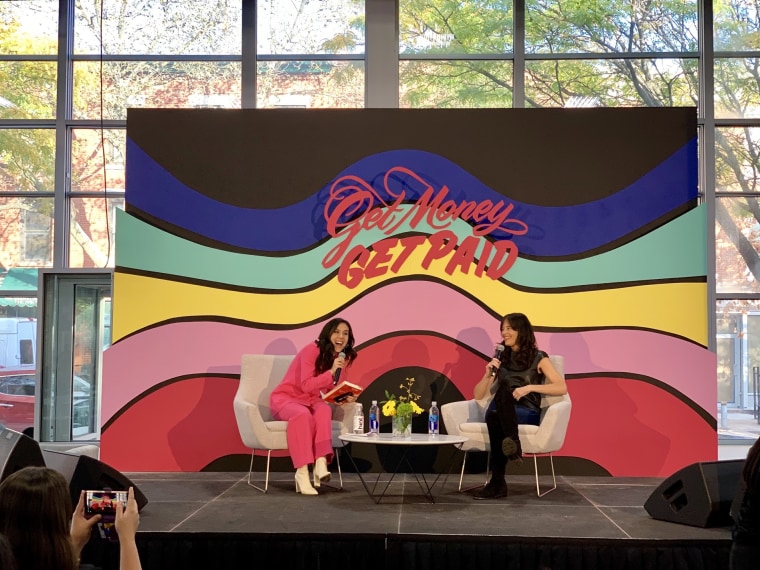In 2017, Meghan Twohey and her colleagues at The New York Times were gearing up to publish a very damning, now famous story about sexual misconduct allegations.
Suddenly, the story’s subject, Hollywood producer Harvey Weinstein, showed up at the door of The Times unannounced.
Twohey recounted the tale at the Ladies Get Paid event in Brooklyn on Saturday to a crowd of hundreds.
First, Twohey went back to the beginning of the saga in an interview on stage with Ladies Get Paid founder Claire Wasserman. Twohey said she had just had a baby when the Weinstein story originally landed at her feet.
“I would be working on Weinstein by day and sleep training at night,” she said.
Over subsequent months, Twohey and fellow journalist Jodi Kantor crossed their t’s and dotted their i’s, which they detailed in their new book “She Said.” They interviewed many victims. They secured an extensive paper trail that proved Weinstein had deployed hush money and very restrictive non-disclosure agreements to many of his victims.

Everyone from Weinstein’s accountant to actress Gwyneth Paltrow had become secret sources who were fueling the story forward, according to new details released in “She Said.” Actress Ashley Judd, who was never made to sign a contract, agreed to make her story public.
Weinstein threatened to sue The Times, according to Twohey. He’d also threatened to take a competing story to a rival newspaper. But Twohey described him as “cornered.”
“We realized that Weinstein was becoming increasingly scared, and we were worried...he'd been able to slip out of scrutiny and avoid stories for so long,” she said.
So, when Weinstein showed up at the door of The New York Times in Manhattan, Twohey didn’t know what to expect. After months of researching his alleged atrocities, she got to speak to Weinstein face-to-face for the first and only time.
“And so I will confess that I was actually the one who said, ‘I'll meet with Harvey Weinstein,’” she recalled. “Like, ‘come on in Harvey, come on in. You want to show us what you’re made of?...I’ll show you what we’re made of.”
Twohey said she booked a small conference room with glass walls so that anyone could see inside. She said Weinstein showed up with tons of folders and a team of lawyers.
“I said, ‘you’ve got 15 minutes, and not a minute more,’” Twohey recalled. Everything was on the record.
Twohey said the lawyers launched into a 10-minute smear campaign of the victims. Immediately after that, Twohey showed them all to the door, she said.
“I walked away thinking, ‘OK, we've learned more about you and your character in the course of these 15 minutes, and maybe you've learned a little bit more about our character ... Because if you think that those tactics are going to work with us, you're certainly mistaken.’”
Not long before the story came out, Twohey and Kantor worried that their pending exposé would have no impact. About a year earlier, Twohey had published a story about Donald J. Trump’s alleged sexual misconduct, and it seemed to go nowhere. In fact, Trump won the presidential election in spite of the allegations. Twohey and other members of the New York Times were beginning to question whether their journalism had any power. They were wrong.
“Within days of our story being published, our emails and our phones were flooded with other women coming forward with their own stories of harassment and abuse,” said Twohey. “I remember going home and flipping up and open my laptop and going on to my Facebook account and seeing my friends and family members and colleagues doing their own stories under the me too hashtag ... It really became like a kind of a group, like a group project in journalism.”
Twohey and Kantor garnered the Pulitzer Prize for The New York Times based on their work. They unveil the whole story in “She Said,” and their story is being adapted into a Hollywood film produced by actor Brad Pitt, who has been outspoken against Weinstein.
